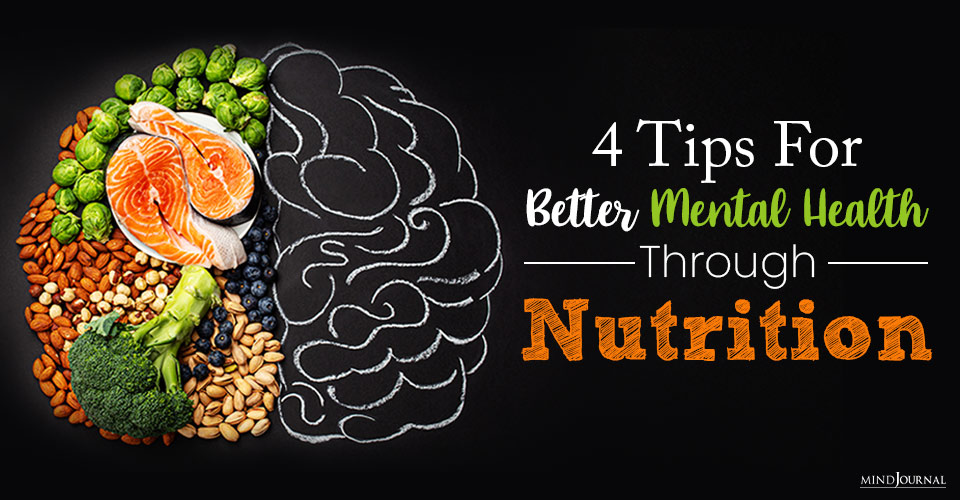
Unlocking Wellness: The Intersection of Mental Health and Nutrition
Maintaining good mental health is a holistic endeavor, and nutrition plays a pivotal role in supporting overall well-being. Explore these essential tips that bridge the gap between mental health and nutrition, offering a comprehensive approach to nourishing both body and mind.
The Gut-Brain Connection: Understanding the Link
The gut and the brain are intricately connected, forming what is often referred to as the gut-brain axis. The food we consume can impact the composition of the gut microbiota, influencing mental health. Prioritizing a diet rich in fiber, prebiotics, and probiotics supports a healthy gut environment, potentially benefiting mood and cognitive function.
Balancing Macronutrients: Fueling Cognitive Function
Macronutrients—proteins, carbohydrates, and fats—are essential for maintaining optimal cognitive function. Proteins provide amino acids, the building blocks for neurotransmitters. Complex carbohydrates offer a steady supply of energy, while healthy fats, such as omega-3 fatty acids, support brain structure and function. Striking a balance ensures the brain receives the nutrients it needs for peak performance.
Prioritizing Omega-3 Fatty Acids: Brain-Boosting Nutrients
Omega-3 fatty acids, found in fatty fish, flaxseeds, chia seeds, and walnuts, are crucial for brain health. These fatty acids contribute to the structure of cell membranes in the brain and have anti-inflammatory effects. Prioritizing foods rich in omega-3s supports cognitive function and may play a role in reducing the risk of mental health disorders.
Micronutrients for Mental Health: Key Vitamins and Minerals
Certain micronutrients play a specific role in mental health. Vitamin D, often referred to as the “sunshine vitamin,” is linked to mood regulation. B vitamins, particularly B6, B9 (folate), and B12, are essential for neurotransmitter synthesis. Minerals like iron, zinc, and magnesium also contribute to cognitive function. A varied and nutrient-dense diet ensures an adequate supply of these vital micronutrients.
Mindful Eating Practices: Cultivating a Positive Relationship with Food
Practicing mindful eating involves being present and attentive during meals, savoring each bite without distractions. This approach promotes a positive relationship with food and helps individuals tune into hunger and fullness cues. Cultivating mindfulness around eating contributes to overall mental well-being.
Limiting Processed Foods and Sugars: Impact on Mental Health
Processed foods and excessive sugar intake have been linked to negative effects on mental health. These foods may contribute to inflammation and oxidative stress in the brain, potentially influencing mood disorders. Choosing whole, unprocessed foods and moderating sugar intake supports mental health and provides sustained energy.
Hydration for Cognitive Function: The Importance of Water
Staying hydrated is fundamental for cognitive function. Dehydration can impair concentration, attention, and mood. Drinking an adequate amount of water throughout the day ensures optimal hydration, supporting overall cognitive performance and mental well-being.
Moderating Caffeine and Alcohol: Balancing Stimulants
While moderate caffeine intake can have cognitive benefits, excessive consumption may lead to anxiety and disrupted sleep, impacting mental health. Similarly, excessive alcohol intake can negatively affect mood and cognitive function. Moderation in the consumption of both caffeine and alcohol contributes to a balanced and supportive approach to mental well-being.
Seeking Professional Guidance: Tailoring Nutrition to Individual Needs
Individual nutritional needs vary, and seeking professional guidance from a registered dietitian or healthcare provider is crucial. A personalized approach considers factors such as specific dietary preferences, lifestyle, and any existing health conditions. Professional guidance ensures that nutrition plans are tailored to support mental health effectively.
Incorporating Mental Health and Nutrition Tips into Daily Life
In conclusion, the intertwining of mental health and nutrition highlights the importance of a holistic approach to well-being. Incorporating these tips into your daily life can be a proactive step toward nurturing both your body and mind. For more insights and additional information on mental health and nutrition tips, you can explore here. Remember, small changes can have a significant impact on your mental well-being over time.




